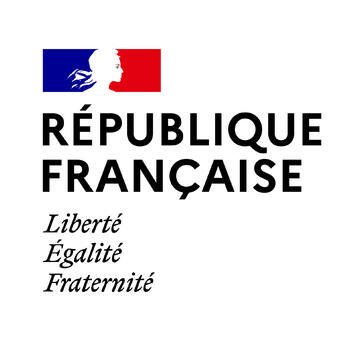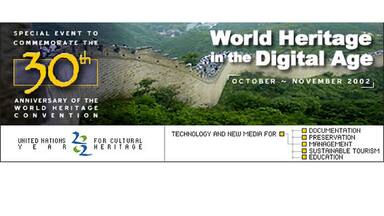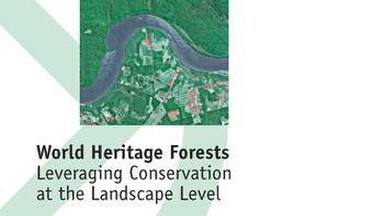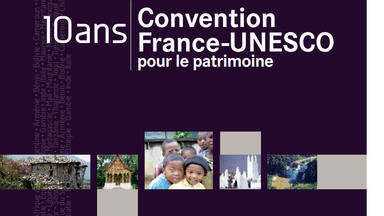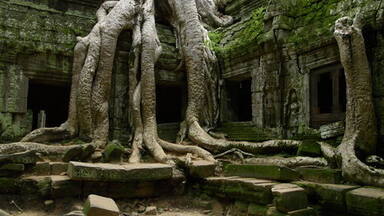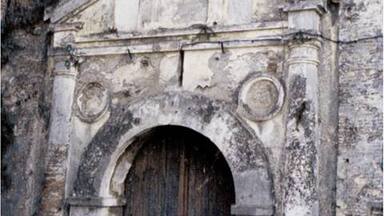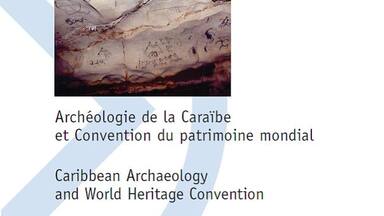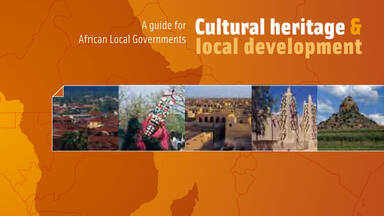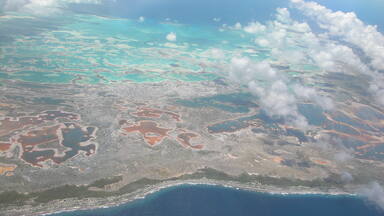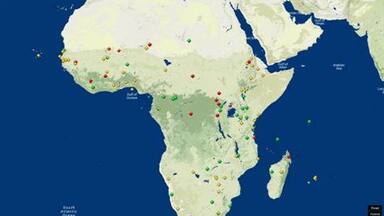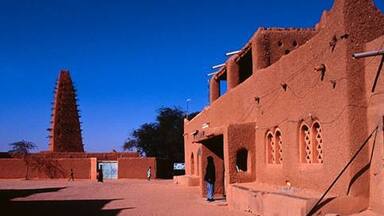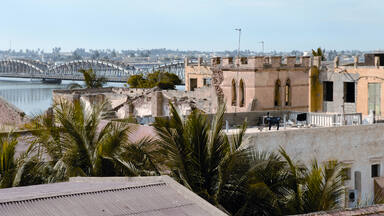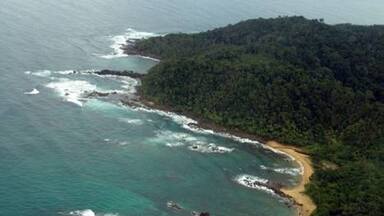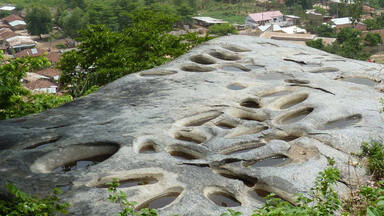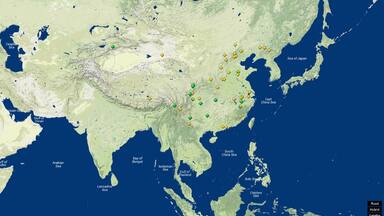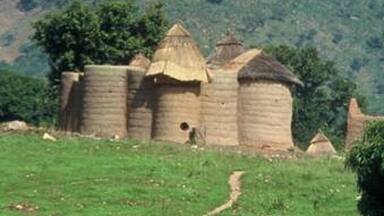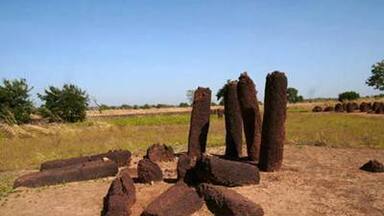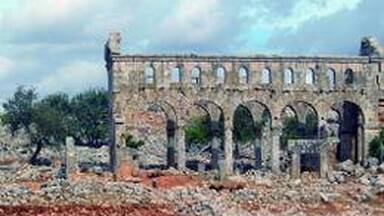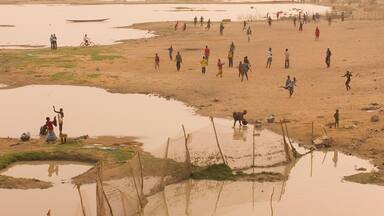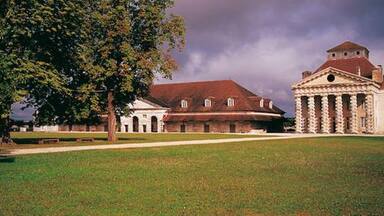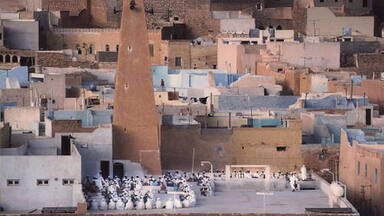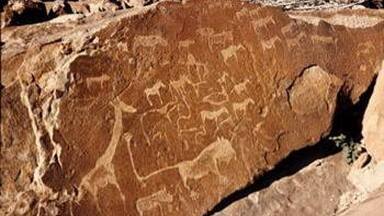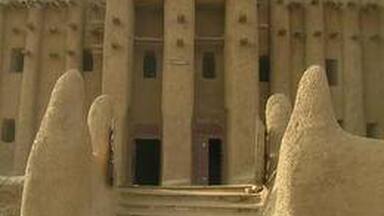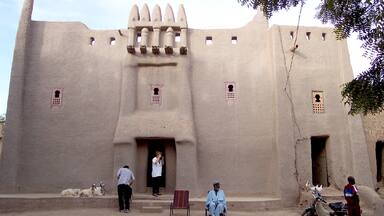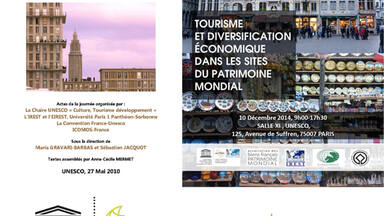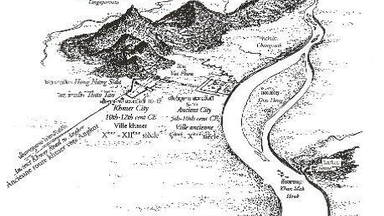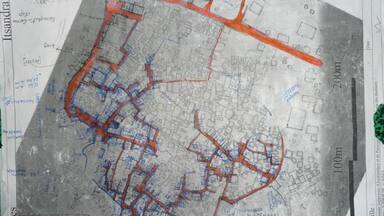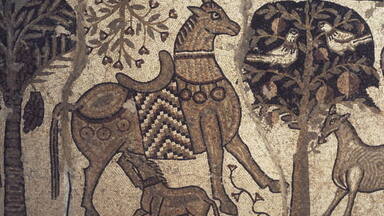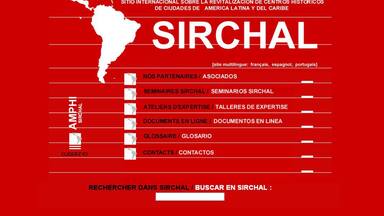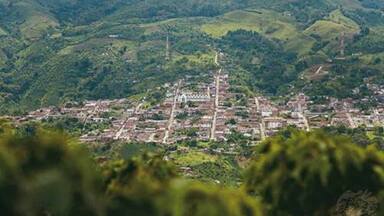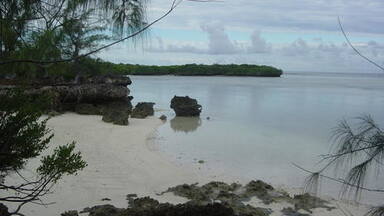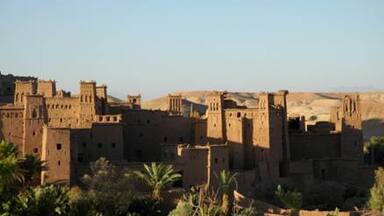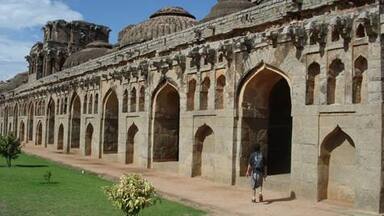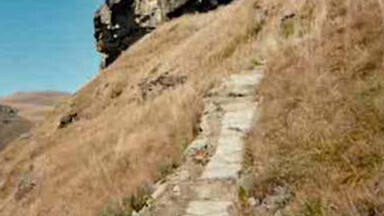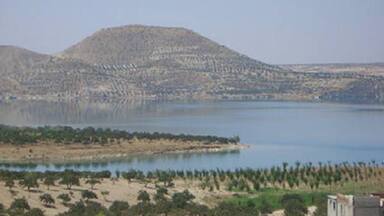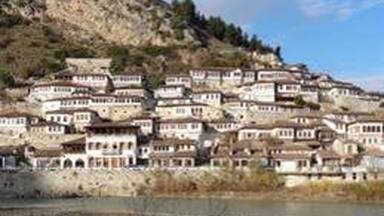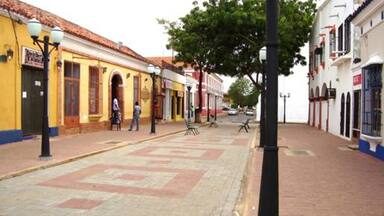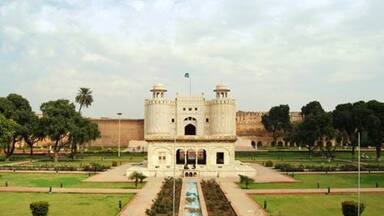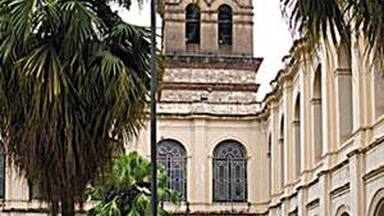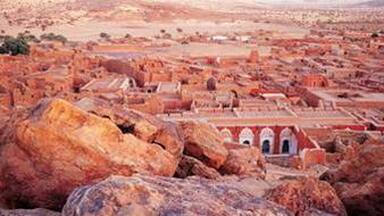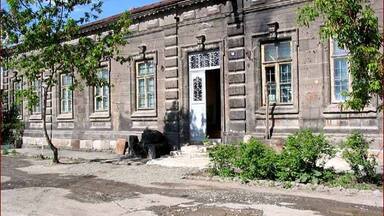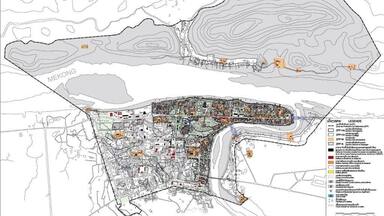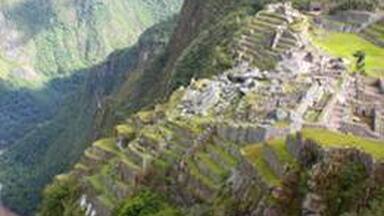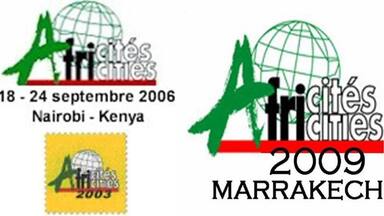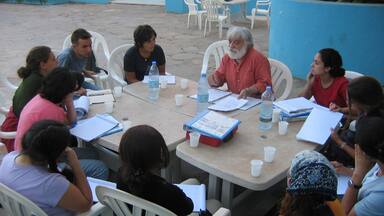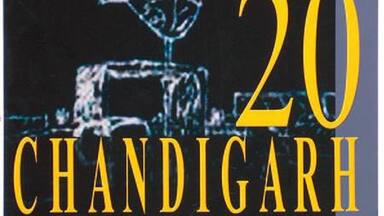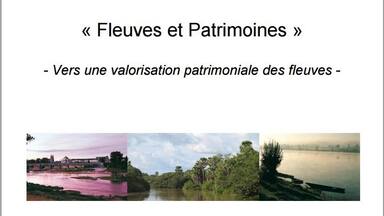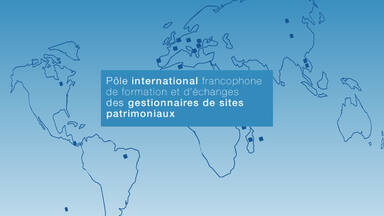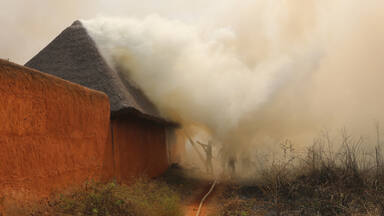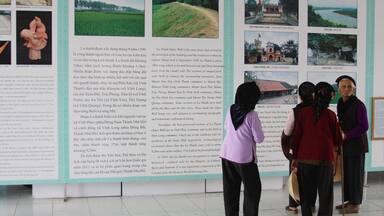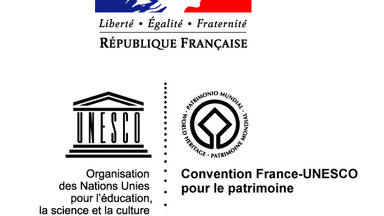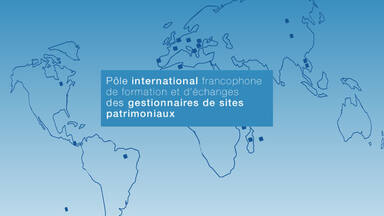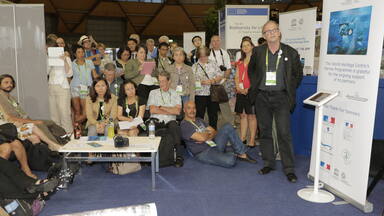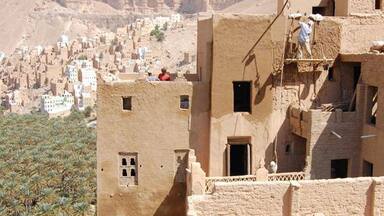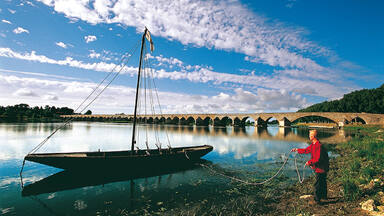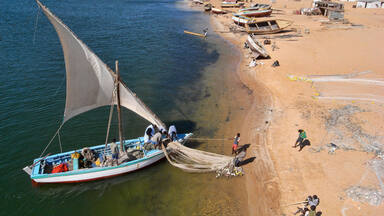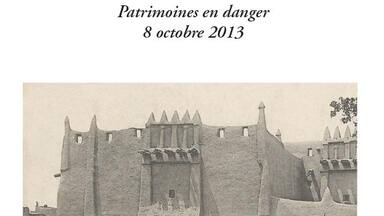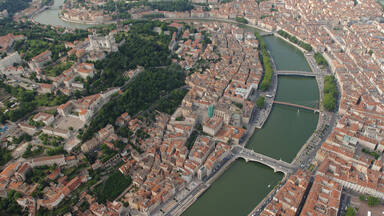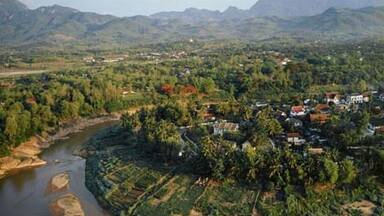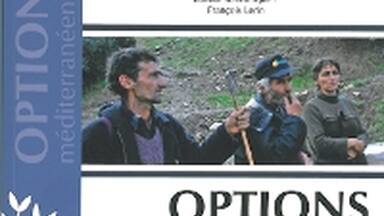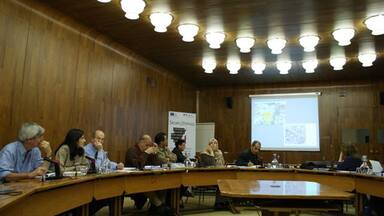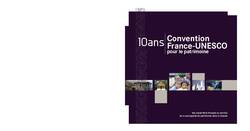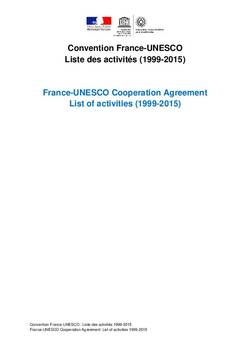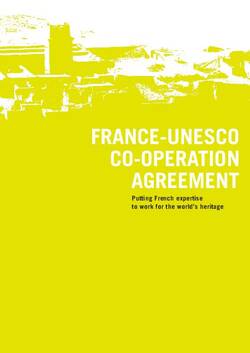Government of France
Principles of the agreement
Signed in 1997, the Co-operation Agreement between UNESCO and the Government of France for the protection and enhancement of the monumental, urban and natural heritage was established to enhance understanding of cultural and natural heritage, to encourage the integration of the preservation of heritage in urban and territorial development projects, and to ensure the inclusion of a social element to heritage conservation. The France - UNESCO Co-operation Agreement between France and UNESCO, was the first bilateral agreement with UNESCO on heritage issues.
A working tool
The France UNESCO Co-operation Agreement was designed to support UNESCO's actions to protect and enhance cultural and natural heritage through technical and financial aid that draws on France's acknowledged expertise in heritage conservation. The knowledge and skills in France were developed over many years of experience and specialized educational and training programmes. Consequently France can put the skills of a wide variety of professionals and experts - including researchers, historians, archaeologists, architects, curators, urban planners, landscape architects, restoration professionals, legal experts and economists, local authorities, universities, NGOs, - at UNESCO's disposal, thus contributing to its fieldwork in the countries that request its assistance.
Lever Effect
Over the last 15 years approximately 100 projects have been undertaken in 50 countries throughout the world. With a budget of approximately 3.7 million euros UNESCO has been able to mobilize more than 18 million euros in the framework of the France-UNESCO Co-operation agreement.
For numerous projects, the France-UNESCO cooperation agreement provided minimal financial input but essentially a qualitative one, as this seed money enabled the mobilization of important donors such as the French Development Agency, European Union and the World Bank.
- Contribute to the World Heritage Global Strategy while following the strategic objectives of the World Heritage Committee (5 C's) to develop a more representative and balanced World Heritage List, and to promote UNESCO's strategy towards culture and development and its commitment towards the objectives of the United Nations Sustainable Development Goals.
- Serve as a leverage for capacity building, focusing on local communities and promote long-term support and implement projects focusing on sustainable economic and social development
- Provide impetus for developing city to city and site to site partnerships and promote decentralized co-operation for heritage protection involving regional or local French authorities, and help foster international aid and co-operation programmes.
Partners Links
www.developpement-durable.gouv.fr
www.diplomatie.gouv.fr
www.culture.gouv.fr
www.afd.fr/home
Our Activities
Technical Assistance and support to state parties
Source: France-UNESCO Cooperation Agreement (CFU)
Global
- 30th Anniversary of the World Heritage Convention Virtual Congress
- 30th Anniversary of the World Heritage Convention. Urbino workshop (Italy) on “Partnerships for World Heritage cities – Culture as a vector for sustainable urban development”
- Assistance to the project for the creation of a global network of World Heritage forests. Seminar in Nancy, France
- Booklet, 10th Anniversary of the France-UNESCO Cooperation Agreement
- Case Studies on the Conservation and Management of Historic Cities
- Global Strategy: Support to agro-pastoral cultural landscapes
- Heritage and poverty alleviation (Senegal, Benin, Lao People's Democratic Republic, China, Guyana)
- International Conference in Istanbul (Turkey) on the resistance of historic buildings to earthquakes
- Marine heritage: Support to the Central Pacific project and support to the World Heritage marine programme
- Preparatory assistance for the nomination of the architectural work of Le Corbusier (Argentina, Belgium, France, Germany, India, Japan, Switzerland)
- Rivers and Heritage
- Seminar at the Royal Saltworks of Arc-et-Senans (France) on Tourism and World Heritage Sites
- Seminar in Cinque Terre (Italy) on cultural landscapes
- Support for international training in France for World Heritage site managers. Support to the Pôle international francophone (PIF)
- Support for production of a documentary film on earthen architecture
- Support for the World Heritage Earthen Architecture Programme (WHEAP)
- Support for the annual seminar of the UNESCO Chair for "Culture, Tourism and Development"
- Support for the establishment of an on-line State of Conservation Information System (SOC) database on the state of conservation reports for World Heritage Properties
- Support to the thematic programme for Small Island Developing States (SIDS), support to the Seychelles seminar
- The Next 50 - 50th anniversary of World Heritage
- Urban conservation and management of historic centres. Recommendation on the Historic Urban Landscape
- Workshop “Rivers and Heritage”, 2 November 2009, French Senate in Paris, France
- “Public works and heritage”. International seminar in Paris, (France) on bridges
Africa
- Capacity building “Cultural heritage and local development”, 18-21 November 2008, Porto Novo, Benin
- Durban Meeting (South Africa) on transboundary properties in Africa
- Handbook on Cultural Heritage and Local Development for African Local Governments
- Meetings in Paris (France) for the Directors of cultural heritage of Francophone Sub-Saharan countries
- Seminar in Niamey (Niger) on Global Strategy in West Africa
- Seminar on raising awareness on Global Strategy in the South West islands of the Indian Ocean and Madagascar
- Sub-regional seminar in Mauritius on awareness raising and presentation of Tentative Lists for the Indian Ocean islands
- Support for African local governments in the field of heritage (EU-AIMF project)
- Support for the Second Cycle of the Periodic Reporting for Africa
- Support to the School of African Heritage (EPA), Porto Novo, Benin
- Urban heritage and local development in Africa: participation in the Africities Summits
Angola
Benin
- Preparatory assistance for the Slave Route, Benin
- Preparatory assistance for the inscription of Koutammakou, the Land of the Batammariba, Togo
Cameroon
Central African Republic
Comoros
Congo
Côte d'Ivoire
- Preparatory assistance for the identification of heritage in Ehotilé Islands National Park, Côte d’Ivoire
- Support for conservation and management of the Historic Town of Grand Bassam, Côte d’Ivoire
Democratic Republic of the Congo
Ethiopia
- Preparatory assistance for an extension to the site of Tiya, Ethiopia
- Technical assistance to update the national inventory of cultural heritage of Ethiopia
Gambia
Lesotho
Madagascar
- Preparatory assistance for inscription of the Rainforests of the Atsinanana, Madagascar
- Preparatory assistance for inscription of the Royal Hill of Ambohimanga
Mali
Mozambique
Niger
Senegal
- Preparatory assistance and technical support for the inscription, conservation and management of the Île de Saint-Louis, Senegal
- Preparatory assistance for the inscription of Stone Circles of Senegambia
- Support for the establishment of the national inventory of cultural heritage of Senegal
South Africa
Togo
Arab States
Algeria
- Conservation and enhancement of the historic city of Bejaïa, Algeria
- Conservation and preservation of the city of Constantine, Algeria
- Safeguarding and development of the M'Zab Valley and its five fortified ksour (El Atteuf, Bou Noura, Beni Isguen, Melika and Ghardaïa), Algeria
- Workshop for heritage in Tlemcen, Algeria
Mauritania
Morocco
- Preparatory assistance for the inscription of the Southern Oasis of Morocco
- Technical Assistance for the protection and development of Ksar of Ait-Ben-Haddou, Morocco
Syrian Arab Republic
- Preparatory assistance for the inscription of the Ancient Villages of Northern Syria, Syrian Arab Republic
- Support research into ancient mosaics of the Ma’arat an-Noman Museum, Syrian Arab Republic
- Workshop on urban development, sustainable development and tourism investment in the North district of Damascus, Syrian Arab Republic
Asia and the Pacific
Cambodia
- Commemoration of ten years of international co-operation at Angkor, Cambodia
- Preparatory assistance for the inscription of the Temple of Preah Vihear, Cambodia
China
Democratic People's Republic of Korea
India
- Preparatory assistance and feasibility study for the inscription of Varanasi, India
- Support for the creation of the Indian Heritage Cities Network (IHCN)
- Technical assistance for the conservation of the Group of Monuments at Hampi, India
- Technical assistance for the management of the Darjeeling Himalayan Railways, the Mountain Railways of India
- Workshop on urban conservation, Chandigarh, India
Japan
Kyrgyzstan
Lao People's Democratic Republic
- Support for the conservation and management of Vat Phou and Associated Ancient Settlements within the Champasak Cultural Landscape, Lao People's Democratic Republic
- Technical cooperation for the enhancement, development and protection of the Town of Luang Prabang, Lao People's Democratic Republic
Pakistan
Thailand
Viet Nam
Europe and North America
- Private property management in historic city centres of European countries in transition
- Support for the restoration of the Christ the Saviour Church in Prizren, Kosovo (References to Kosovo shall be understood to be in the context of Security Council resolution 1244 (1999))
Albania
Armenia
Latvia
Russian Federation
Türkiye
- Technical assistance for the management of the Archaeological Site of Zeugma and its surroundings, Gaziantep, Turkey
- Technical support for the management, enhancement and development of the Historic Areas of Istanbul, Turkey
Latin America and the Caribbean
- Global Strategy: Workshop on the identification of archaeological sites in the Caribbean, and on major risks management
- Support to the International seminar on the Rehabilitation of Historic Centres of Latin American Cities (SIRCHAL) Programme
- Training workshops on new cultural heritage management techniques for Andean countries (Bolivia (Plurinational State of), Colombia, Ecuador, Peru, Venezuela (Bolivarian Republic of))
Argentina
Bolivia (Plurinational State of)
Chile
Colombia
El Salvador
Venezuela (Bolivarian Republic of)
- Durban Meeting (South Africa) on transboundary properties in Africa
- Support for the Second Cycle of the Periodic Reporting for Africa
- Support research into ancient mosaics of the Ma’arat an-Noman Museum, Syrian Arab Republic
- The Next 50 - 50th anniversary of World Heritage
Capacity Building
- 30th Anniversary of the World Heritage Convention. Urbino workshop (Italy) on “Partnerships for World Heritage cities – Culture as a vector for sustainable urban development”
- Booklet, 10th Anniversary of the France-UNESCO Cooperation Agreement
- Capacity building “Cultural heritage and local development”, 18-21 November 2008, Porto Novo, Benin
- Case Studies on the Conservation and Management of Historic Cities
- Conservation and enhancement of the historic city of Bejaïa, Algeria
- Conservation and preservation of the city of Constantine, Algeria
- Global Strategy: Support to agro-pastoral cultural landscapes
- Handbook on Cultural Heritage and Local Development for African Local Governments
- International Conference in Istanbul (Turkey) on the resistance of historic buildings to earthquakes
- Preparatory assistance and technical support for the inscription, conservation and management of the Île de Saint-Louis, Senegal
- Preparatory assistance for the inscription of Stone Circles of Senegambia
- Preparatory assistance for the inscription of the Ancient Villages of Northern Syria, Syrian Arab Republic
- Rivers and Heritage: Niger-Loire, Governance and Culture project. Development of heritage and support for management of land and water resources, Mali
- Safeguarding and development of the M'Zab Valley and its five fortified ksour (El Atteuf, Bou Noura, Beni Isguen, Melika and Ghardaïa), Algeria
- Seminar on the cultural heritage inventories of Maghreb
- Support for African local governments in the field of heritage (EU-AIMF project)
- Support for the creation of the Indian Heritage Cities Network (IHCN)
- Support for the establishment of an on-line State of Conservation Information System (SOC) database on the state of conservation reports for World Heritage Properties
- Technical Assistance for the protection and development of Ksar of Ait-Ben-Haddou, Morocco
- Technical assistance for the management of iSimangaliso Wetland Park (South Africa) and Maloti-Drakensberg Park (Lesotho)
- Technical assistance for the management of the Historic Centres of Berat and Gjirokastra, Albania
- Technical assistance for the safeguarding, management and development of the Historic Centre of Riga, Latvia
- Technical assistance for urban management and rehabilitation of the Ancient Ksour of Ouadane, Chinguetti, Tichitt and Oualata, Mauritania
- Technical cooperation for the enhancement, development and protection of the Town of Luang Prabang, Lao People's Democratic Republic
- Urban conservation and management of historic centres. Recommendation on the Historic Urban Landscape
- Workshop for heritage in Tlemcen, Algeria
- Workshop on urban development, sustainable development and tourism investment in the North district of Damascus, Syrian Arab Republic
- “Public works and heritage”. International seminar in Paris, (France) on bridges
Communication
- 30th Anniversary of the World Heritage Convention. Urbino workshop (Italy) on “Partnerships for World Heritage cities – Culture as a vector for sustainable urban development”
- Booklet, 10th Anniversary of the France-UNESCO Cooperation Agreement
- Case Studies on the Conservation and Management of Historic Cities
- Commemoration of ten years of international co-operation at Angkor, Cambodia
- Global Strategy: Support to agro-pastoral cultural landscapes
- Global Strategy: Workshop on the identification of archaeological sites in the Caribbean, and on major risks management
- International Conference in Istanbul (Turkey) on the resistance of historic buildings to earthquakes
- Marine heritage: Support to the Central Pacific project and support to the World Heritage marine programme
- Meetings in Paris (France) for the Directors of cultural heritage of Francophone Sub-Saharan countries
- Preparation and publication: “Historic atlas of Kyoto”, Japan
- Preparatory assistance and feasibility study for the inscription of Varanasi, India
- Preparatory assistance and technical support for the inscription, conservation and management of the Île de Saint-Louis, Senegal
- Preparatory assistance for inscription of the Rainforests of the Atsinanana, Madagascar
- Preparatory assistance for inscription of the Royal Hill of Ambohimanga
- Preparatory assistance for the inscription and protection of the Kingdom of Wu (The Six Canal Towns of the Lower Yangtze River) and support for the establishment of a GIS at the University of Tongi, China
- Preparatory assistance for the inscription of Stone Circles of Senegambia
- Preparatory assistance for the inscription of the Southern Oasis of Morocco
- Preparatory assistance for the inscription of the Temple of Preah Vihear, Cambodia
- Preparatory assistance for the nomination of the architectural work of Le Corbusier (Argentina, Belgium, France, Germany, India, Japan, Switzerland)
- Private property management in historic city centres of European countries in transition
- Restauration and revitalisation of the Complex of Hué Monuments and historical town, Viet Nam
- Rivers and Heritage: Niger-Loire, Governance and Culture project. Development of heritage and support for management of land and water resources, Mali
- Seminar at the Royal Saltworks of Arc-et-Senans (France) on Tourism and World Heritage Sites
- Seminar in Cinque Terre (Italy) on cultural landscapes
- Seminar in Niamey (Niger) on Global Strategy in West Africa
- Sub-regional seminar in Mauritius on awareness raising and presentation of Tentative Lists for the Indian Ocean islands
- Support for international training in France for World Heritage site managers. Support to the Pôle international francophone (PIF)
- Support for production of a documentary film on earthen architecture
- Support for the annual seminar of the UNESCO Chair for "Culture, Tourism and Development"
- Support for the conservation of the Complex of Koguryo Tombs in the Democratic People's Republic of Korea
- Support to the International seminar on the Rehabilitation of Historic Centres of Latin American Cities (SIRCHAL) Programme
- Support to the UNESCO Chair in management of Cultural Heritage, Manizales branch, National University of Colombia, Colombia
- Support to the thematic programme for Small Island Developing States (SIDS), support to the Seychelles seminar
- Technical Assistance for the protection and development of Ksar of Ait-Ben-Haddou, Morocco
- Technical assistance for the creation of a museum on the archaeological and mining site of the City of Potosí, Bolivia (Plurinational State of)
- Technical assistance for the management of the Archaeological Site of Zeugma and its surroundings, Gaziantep, Turkey
- Technical assistance for the management of the Darjeeling Himalayan Railways, the Mountain Railways of India
- Technical assistance for the restoration of Saint Basil's Basilica, Moscow, Russian Federation
- Technical assistance for urban management and rehabilitation of the Ancient Ksour of Ouadane, Chinguetti, Tichitt and Oualata, Mauritania
- Technical assistance to the Shirak Museum, Armenia
- Technical support for the management, enhancement and development of the Historic Areas of Istanbul, Turkey
- Workshop for heritage in Tlemcen, Algeria
- Workshop on urban conservation, Chandigarh, India
Communities
- 30th Anniversary of the World Heritage Convention. Urbino workshop (Italy) on “Partnerships for World Heritage cities – Culture as a vector for sustainable urban development”
- Booklet, 10th Anniversary of the France-UNESCO Cooperation Agreement
- Case Studies on the Conservation and Management of Historic Cities
- Commemoration of ten years of international co-operation at Angkor, Cambodia
- Conservation and enhancement of the historic city of Bejaïa, Algeria
- Conservation and preservation of the city of Constantine, Algeria
- Global Strategy: Support to agro-pastoral cultural landscapes
- Heritage and poverty alleviation (Senegal, Benin, Lao People's Democratic Republic, China, Guyana)
- Marine heritage: Support to the Central Pacific project and support to the World Heritage marine programme
- Meetings in Paris (France) for the Directors of cultural heritage of Francophone Sub-Saharan countries
- Preparatory assistance and establishment of a management plan for the Historic Centre of Agadez, Niger
- Preparatory assistance and technical support for the inscription, conservation and management of the Île de Saint-Louis, Senegal
- Preparatory assistance for inscription of the Royal Hill of Ambohimanga
- Preparatory assistance for the Slave Route, Benin
- Preparatory assistance for the inscription and protection of the Kingdom of Wu (The Six Canal Towns of the Lower Yangtze River) and support for the establishment of a GIS at the University of Tongi, China
- Preparatory assistance for the inscription of Issyk Kul warm-water lake, Kyrgyzstan
- Preparatory assistance for the inscription of Koutammakou, the Land of the Batammariba, Togo
- Preparatory assistance for the inscription of the Southern Oasis of Morocco
- Preparatory assistance for the inscription of the Temple of Preah Vihear, Cambodia
- Preparatory assistance for the nomination of the architectural work of Le Corbusier (Argentina, Belgium, France, Germany, India, Japan, Switzerland)
- Rivers and Heritage: Niger-Loire, Governance and Culture project. Development of heritage and support for management of land and water resources, Mali
- Safeguarding and development of the M'Zab Valley and its five fortified ksour (El Atteuf, Bou Noura, Beni Isguen, Melika and Ghardaïa), Algeria
- Seminar at the Royal Saltworks of Arc-et-Senans (France) on Tourism and World Heritage Sites
- Seminar in Cinque Terre (Italy) on cultural landscapes
- Seminar on raising awareness on Global Strategy in the South West islands of the Indian Ocean and Madagascar
- Support for African local governments in the field of heritage (EU-AIMF project)
- Support for international training in France for World Heritage site managers. Support to the Pôle international francophone (PIF)
- Support for the identification, safeguarding and protection of heritage in Comoros
- Support to the International seminar on the Rehabilitation of Historic Centres of Latin American Cities (SIRCHAL) Programme
- Support to the School of African Heritage (EPA), Porto Novo, Benin
- Support to the thematic programme for Small Island Developing States (SIDS), support to the Seychelles seminar
- Technical assistance for the creation of a museum on the archaeological and mining site of the City of Potosí, Bolivia (Plurinational State of)
- Technical assistance for the management of the Archaeological Site of Zeugma and its surroundings, Gaziantep, Turkey
- Technical assistance for the management of the Darjeeling Himalayan Railways, the Mountain Railways of India
- Technical assistance for the management of the Historic Centres of Berat and Gjirokastra, Albania
- Technical assistance for the safeguarding, management and development of the Historic Centre of Riga, Latvia
- Technical assistance for urban management and rehabilitation of the Ancient Ksour of Ouadane, Chinguetti, Tichitt and Oualata, Mauritania
- Technical support for the management, enhancement and development of the Historic Areas of Istanbul, Turkey
- Training workshops on new cultural heritage management techniques for Andean countries (Bolivia (Plurinational State of), Colombia, Ecuador, Peru, Venezuela (Bolivarian Republic of))
- Urban conservation and management of historic centres. Recommendation on the Historic Urban Landscape
- Workshop for heritage in Tlemcen, Algeria
- Workshop on urban development, sustainable development and tourism investment in the North district of Damascus, Syrian Arab Republic
- “Humanize Bangkok” project, Thailand
Conservation
- 30th Anniversary of the World Heritage Convention Virtual Congress
- 30th Anniversary of the World Heritage Convention. Urbino workshop (Italy) on “Partnerships for World Heritage cities – Culture as a vector for sustainable urban development”
- Assistance to the project for the creation of a global network of World Heritage forests. Seminar in Nancy, France
- Booklet, 10th Anniversary of the France-UNESCO Cooperation Agreement
- Case Studies on the Conservation and Management of Historic Cities
- Commemoration of ten years of international co-operation at Angkor, Cambodia
- Conservation and enhancement of the historic city of Bejaïa, Algeria
- Conservation and preservation of the city of Constantine, Algeria
- Emergency assistance to the Okapi Wildlife Reserve of the Democratic Republic of the Congo
- Global Strategy: Support to agro-pastoral cultural landscapes
- Heritage and poverty alleviation (Senegal, Benin, Lao People's Democratic Republic, China, Guyana)
- International Conference in Istanbul (Turkey) on the resistance of historic buildings to earthquakes
- Marine heritage: Support to the Central Pacific project and support to the World Heritage marine programme
- Meetings in Paris (France) for the Directors of cultural heritage of Francophone Sub-Saharan countries
- Preparatory assistance and establishment of a management plan for the Historic Centre of Agadez, Niger
- Preparatory assistance and feasibility study for the inscription of Varanasi, India
- Preparatory assistance and technical support for the inscription, conservation and management of the Île de Saint-Louis, Senegal
- Preparatory assistance for an extension to the site of Tiya, Ethiopia
- Preparatory assistance for inscription of the Rainforests of the Atsinanana, Madagascar
- Preparatory assistance for inscription of the Royal Domain of Mbé cultural landscape, Congo
- Preparatory assistance for inscription of the Royal Hill of Ambohimanga
- Preparatory assistance for the Slave Route, Benin
- Preparatory assistance for the identification of heritage in Ehotilé Islands National Park, Côte d’Ivoire
- Preparatory assistance for the inscription and protection of the Kingdom of Wu (The Six Canal Towns of the Lower Yangtze River) and support for the establishment of a GIS at the University of Tongi, China
- Preparatory assistance for the inscription of Koutammakou, the Land of the Batammariba, Togo
- Preparatory assistance for the inscription of Stone Circles of Senegambia
- Preparatory assistance for the inscription of The forest and the residential encampments of the Aka Pygmies of the Central African Republic
- Preparatory assistance for the inscription of the Ancient Villages of Northern Syria, Syrian Arab Republic
- Preparatory assistance for the inscription of the Southern Oasis of Morocco
- Preparatory assistance for the inscription of the property and support for the management of the Humberstone and Santa Laura Saltpeter Works in Chile
- Preparatory assistance for the nomination of the architectural work of Le Corbusier (Argentina, Belgium, France, Germany, India, Japan, Switzerland)
- Preparatory assistance for the updating of the national inventory of cultural heritage of Cameroon
- Private property management in historic city centres of European countries in transition
- Restauration and revitalisation of the Complex of Hué Monuments and historical town, Viet Nam
- Rivers and Heritage
- Rivers and Heritage: Niger-Loire, Governance and Culture project. Development of heritage and support for management of land and water resources, Mali
- Safeguarding and development of the M'Zab Valley and its five fortified ksour (El Atteuf, Bou Noura, Beni Isguen, Melika and Ghardaïa), Algeria
- Seminar at the Royal Saltworks of Arc-et-Senans (France) on Tourism and World Heritage Sites
- Seminar in Cinque Terre (Italy) on cultural landscapes
- Seminar in Niamey (Niger) on Global Strategy in West Africa
- Seminar on raising awareness on Global Strategy in the South West islands of the Indian Ocean and Madagascar
- Seminar on the cultural heritage inventories of Maghreb
- Strategy for the preservation of rock art sites in Angola
- Sub-regional seminar in Mauritius on awareness raising and presentation of Tentative Lists for the Indian Ocean islands
- Support for African local governments in the field of heritage (EU-AIMF project)
- Support for conservation and management of the Historic Town of Grand Bassam, Côte d’Ivoire
- Support for international training in France for World Heritage site managers. Support to the Pôle international francophone (PIF)
- Support for the World Heritage Earthen Architecture Programme (WHEAP)
- Support for the annual seminar of the UNESCO Chair for "Culture, Tourism and Development"
- Support for the conservation and management of Vat Phou and Associated Ancient Settlements within the Champasak Cultural Landscape, Lao People's Democratic Republic
- Support for the conservation of the Complex of Koguryo Tombs in the Democratic People's Republic of Korea
- Support for the creation of the Indian Heritage Cities Network (IHCN)
- Support for the establishment of an on-line State of Conservation Information System (SOC) database on the state of conservation reports for World Heritage Properties
- Support for the establishment of the national inventory of cultural heritage of Senegal
- Support for the identification, safeguarding and protection of heritage in Comoros
- Support for the restoration of the Christ the Saviour Church in Prizren, Kosovo (References to Kosovo shall be understood to be in the context of Security Council resolution 1244 (1999))
- Support to the International seminar on the Rehabilitation of Historic Centres of Latin American Cities (SIRCHAL) Programme
- Technical Assistance for the protection and development of Ksar of Ait-Ben-Haddou, Morocco
- Technical assistance for the conservation of the Group of Monuments at Hampi, India
- Technical assistance for the creation of a museum on the archaeological and mining site of the City of Potosí, Bolivia (Plurinational State of)
- Technical assistance for the management of iSimangaliso Wetland Park (South Africa) and Maloti-Drakensberg Park (Lesotho)
- Technical assistance for the management of the Archaeological Site of Zeugma and its surroundings, Gaziantep, Turkey
- Technical assistance for the management of the Darjeeling Himalayan Railways, the Mountain Railways of India
- Technical assistance for the management of the Historic Centres of Berat and Gjirokastra, Albania
- Technical assistance for the management of the Joya de Cerén Archaeological Site, El Salvador
- Technical assistance for the preparation and establishment of a management plan for Coro and its Port, Venezuela (Bolivarian Republic of)
- Technical assistance for the restoration of Saint Basil's Basilica, Moscow, Russian Federation
- Technical assistance for the safeguarding, management and development of the Historic Centre of Riga, Latvia
- Technical assistance for the valorisation of the Fort and Shalamar Gardens in Lahore, Pakistan
- Technical assistance for the valorisation of the Villa Ocampo, Buenos Aires, Argentina
- Technical assistance for urban management and rehabilitation of the Ancient Ksour of Ouadane, Chinguetti, Tichitt and Oualata, Mauritania
- Technical assistance to the Shirak Museum, Armenia
- Technical assistance to update the national inventory of cultural heritage of Ethiopia
- Technical support for the management, enhancement and development of the Historic Areas of Istanbul, Turkey
- Urban conservation and management of historic centres. Recommendation on the Historic Urban Landscape
- Urban heritage and local development in Africa: participation in the Africities Summits
- Workshop for heritage in Tlemcen, Algeria
- Workshop on urban conservation, Chandigarh, India
- Workshop on urban development, sustainable development and tourism investment in the North district of Damascus, Syrian Arab Republic
- Workshop “Rivers and Heritage”, 2 November 2009, French Senate in Paris, France
- “Public works and heritage”. International seminar in Paris, (France) on bridges
Credibility
- 30th Anniversary of the World Heritage Convention. Urbino workshop (Italy) on “Partnerships for World Heritage cities – Culture as a vector for sustainable urban development”
- Booklet, 10th Anniversary of the France-UNESCO Cooperation Agreement
- Case Studies on the Conservation and Management of Historic Cities
- Conservation and enhancement of the historic city of Bejaïa, Algeria
- Global Strategy: Support to agro-pastoral cultural landscapes
- Marine heritage: Support to the Central Pacific project and support to the World Heritage marine programme
- Preparatory assistance and feasibility study for the inscription of Varanasi, India
- Preparatory assistance and technical support for the inscription, conservation and management of the Île de Saint-Louis, Senegal
- Preparatory assistance for inscription of the Rainforests of the Atsinanana, Madagascar
- Preparatory assistance for inscription of the Royal Hill of Ambohimanga
- Preparatory assistance for the inscription of Issyk Kul warm-water lake, Kyrgyzstan
- Preparatory assistance for the inscription of Stone Circles of Senegambia
- Preparatory assistance for the inscription of the Ancient Villages of Northern Syria, Syrian Arab Republic
- Preparatory assistance for the inscription of the Temple of Preah Vihear, Cambodia
- Preparatory assistance for the nomination of the architectural work of Le Corbusier (Argentina, Belgium, France, Germany, India, Japan, Switzerland)
- Rivers and Heritage: Niger-Loire, Governance and Culture project. Development of heritage and support for management of land and water resources, Mali
- Sub-regional seminar in Mauritius on awareness raising and presentation of Tentative Lists for the Indian Ocean islands
- Support for conservation and management of the Historic Town of Grand Bassam, Côte d’Ivoire
- Support for the establishment of an on-line State of Conservation Information System (SOC) database on the state of conservation reports for World Heritage Properties
- Technical assistance for the management of iSimangaliso Wetland Park (South Africa) and Maloti-Drakensberg Park (Lesotho)
- Technical assistance for urban management and rehabilitation of the Ancient Ksour of Ouadane, Chinguetti, Tichitt and Oualata, Mauritania
- Urban heritage and local development in Africa: participation in the Africities Summits
- Workshop on urban conservation, Chandigarh, India
- Booklet, 10th Anniversary of the France-UNESCO Cooperation Agreement
- The Next 50 - 50th anniversary of World Heritage
- Technical assistance for urban management and rehabilitation of the Ancient Ksour of Ouadane, Chinguetti, Tichitt and Oualata, Mauritania
- “Humanize Bangkok” project, Thailand
- “Public works and heritage”. International seminar in Paris, (France) on bridges
- 30th Anniversary of the World Heritage Convention Virtual Congress
- 30th Anniversary of the World Heritage Convention. Urbino workshop (Italy) on “Partnerships for World Heritage cities – Culture as a vector for sustainable urban development”
- Assistance to the project for the creation of a global network of World Heritage forests. Seminar in Nancy, France
- Case Studies on the Conservation and Management of Historic Cities
- Commemoration of ten years of international co-operation at Angkor, Cambodia
- Conservation and enhancement of the historic city of Bejaïa, Algeria
- Conservation and preservation of the city of Constantine, Algeria
- Durban Meeting (South Africa) on transboundary properties in Africa
- Emergency assistance to the Okapi Wildlife Reserve of the Democratic Republic of the Congo
- Global Strategy: Support to agro-pastoral cultural landscapes
- Global Strategy: Workshop on the identification of archaeological sites in the Caribbean, and on major risks management
- Handbook on Cultural Heritage and Local Development for African Local Governments
- Heritage and poverty alleviation (Senegal, Benin, Lao People's Democratic Republic, China, Guyana)
- International Conference in Istanbul (Turkey) on the resistance of historic buildings to earthquakes
- Marine heritage: Support to the Central Pacific project and support to the World Heritage marine programme
- Meetings in Paris (France) for the Directors of cultural heritage of Francophone Sub-Saharan countries
- Preparation and publication: “Historic atlas of Kyoto”, Japan
- Preparatory assistance and establishment of a management plan for the Historic Centre of Agadez, Niger
- Preparatory assistance and feasibility study for the inscription of Varanasi, India
- Preparatory assistance and technical support for the inscription, conservation and management of the Île de Saint-Louis, Senegal
- Preparatory assistance for an extension to the site of Tiya, Ethiopia
- Preparatory assistance for inscription of the Rainforests of the Atsinanana, Madagascar
- Preparatory assistance for inscription of the Royal Domain of Mbé cultural landscape, Congo
- Preparatory assistance for inscription of the Royal Hill of Ambohimanga
- Preparatory assistance for the identification of heritage in Ehotilé Islands National Park, Côte d’Ivoire
- Preparatory assistance for the inscription and protection of the Kingdom of Wu (The Six Canal Towns of the Lower Yangtze River) and support for the establishment of a GIS at the University of Tongi, China
- Preparatory assistance for the inscription of Issyk Kul warm-water lake, Kyrgyzstan
- Preparatory assistance for the inscription of Koutammakou, the Land of the Batammariba, Togo
- Preparatory assistance for the inscription of Stone Circles of Senegambia
- Preparatory assistance for the inscription of the Ancient Villages of Northern Syria, Syrian Arab Republic
- Preparatory assistance for the inscription of The forest and the residential encampments of the Aka Pygmies of the Central African Republic
- Preparatory assistance for the inscription of the property and support for the management of the Humberstone and Santa Laura Saltpeter Works in Chile
- Preparatory assistance for the inscription of the Southern Oasis of Morocco
- Preparatory assistance for the inscription of the Temple of Preah Vihear, Cambodia
- Preparatory assistance for the nomination of the architectural work of Le Corbusier (Argentina, Belgium, France, Germany, India, Japan, Switzerland)
- Preparatory assistance for the Slave Route, Benin
- Preparatory assistance for the updating of the national inventory of cultural heritage of Cameroon
- Private property management in historic city centres of European countries in transition
- Restauration and revitalisation of the Complex of Hué Monuments and historical town, Viet Nam
- Rivers and Heritage
- Rivers and Heritage: Niger-Loire, Governance and Culture project. Development of heritage and support for management of land and water resources, Mali
- Safeguarding and development of the M'Zab Valley and its five fortified ksour (El Atteuf, Bou Noura, Beni Isguen, Melika and Ghardaïa), Algeria
- Seminar at the Royal Saltworks of Arc-et-Senans (France) on Tourism and World Heritage Sites
- Seminar in Cinque Terre (Italy) on cultural landscapes
- Seminar in Niamey (Niger) on Global Strategy in West Africa
- Seminar on raising awareness on Global Strategy in the South West islands of the Indian Ocean and Madagascar
- Seminar on the cultural heritage inventories of Maghreb
- Strategy for the preservation of rock art sites in Angola
- Sub-regional seminar in Mauritius on awareness raising and presentation of Tentative Lists for the Indian Ocean islands
- Support for African local governments in the field of heritage (EU-AIMF project)
- Support for conservation and management of the Historic Town of Grand Bassam, Côte d’Ivoire
- Support for international training in France for World Heritage site managers. Support to the Pôle international francophone (PIF)
- Support for the conservation and management of Vat Phou and Associated Ancient Settlements within the Champasak Cultural Landscape, Lao People's Democratic Republic
- Support for the conservation of the Complex of Koguryo Tombs in the Democratic People's Republic of Korea
- Support for the creation of the Indian Heritage Cities Network (IHCN)
- Support for the establishment of an on-line State of Conservation Information System (SOC) database on the state of conservation reports for World Heritage Properties
- Support for the establishment of the national inventory of cultural heritage of Senegal
- Support for the identification, safeguarding and protection of heritage in Comoros
- Support for the restoration of the Christ the Saviour Church in Prizren, Kosovo (References to Kosovo shall be understood to be in the context of Security Council resolution 1244 (1999))
- Support for the World Heritage Earthen Architecture Programme (WHEAP)
- Support to the International seminar on the Rehabilitation of Historic Centres of Latin American Cities (SIRCHAL) Programme
- Support to the School of African Heritage (EPA), Porto Novo, Benin
- Support to the thematic programme for Small Island Developing States (SIDS), support to the Seychelles seminar
- Support to the UNESCO Chair in management of Cultural Heritage, Manizales branch, National University of Colombia, Colombia
- Technical assistance for the conservation of the Group of Monuments at Hampi, India
- Technical assistance for the creation of a museum on the archaeological and mining site of the City of Potosí, Bolivia (Plurinational State of)
- Technical assistance for the management of iSimangaliso Wetland Park (South Africa) and Maloti-Drakensberg Park (Lesotho)
- Technical assistance for the management of the Archaeological Site of Zeugma and its surroundings, Gaziantep, Turkey
- Technical assistance for the management of the Darjeeling Himalayan Railways, the Mountain Railways of India
- Technical assistance for the management of the Historic Centres of Berat and Gjirokastra, Albania
- Technical assistance for the management of the Joya de Cerén Archaeological Site, El Salvador
- Technical assistance for the preparation and establishment of a management plan for Coro and its Port, Venezuela (Bolivarian Republic of)
- Technical Assistance for the protection and development of Ksar of Ait-Ben-Haddou, Morocco
- Technical assistance for the restoration of Saint Basil's Basilica, Moscow, Russian Federation
- Technical assistance for the safeguarding, management and development of the Historic Centre of Riga, Latvia
- Technical assistance for the valorisation of the Fort and Shalamar Gardens in Lahore, Pakistan
- Technical assistance for the valorisation of the Villa Ocampo, Buenos Aires, Argentina
- Technical assistance to the Shirak Museum, Armenia
- Technical assistance to update the national inventory of cultural heritage of Ethiopia
- Technical cooperation for the enhancement, development and protection of the Town of Luang Prabang, Lao People's Democratic Republic
- Technical support for the management, enhancement and development of the Historic Areas of Istanbul, Turkey
- Training workshops on new cultural heritage management techniques for Andean countries (Bolivia (Plurinational State of), Colombia, Ecuador, Peru, Venezuela (Bolivarian Republic of))
- Urban conservation and management of historic centres. Recommendation on the Historic Urban Landscape
- Urban heritage and local development in Africa: participation in the Africities Summits
- Workshop “Rivers and Heritage”, 2 November 2009, French Senate in Paris, France
- Workshop for heritage in Tlemcen, Algeria
- Workshop on urban conservation, Chandigarh, India
- Workshop on urban development, sustainable development and tourism investment in the North district of Damascus, Syrian Arab Republic
- Support for the Second Cycle of the Periodic Reporting for Africa
- Support research into ancient mosaics of the Ma’arat an-Noman Museum, Syrian Arab Republic
- Support for the annual seminar of the UNESCO Chair for "Culture, Tourism and Development"
- Capacity building “Cultural heritage and local development”, 18-21 November 2008, Porto Novo, Benin
- Support for production of a documentary film on earthen architecture
